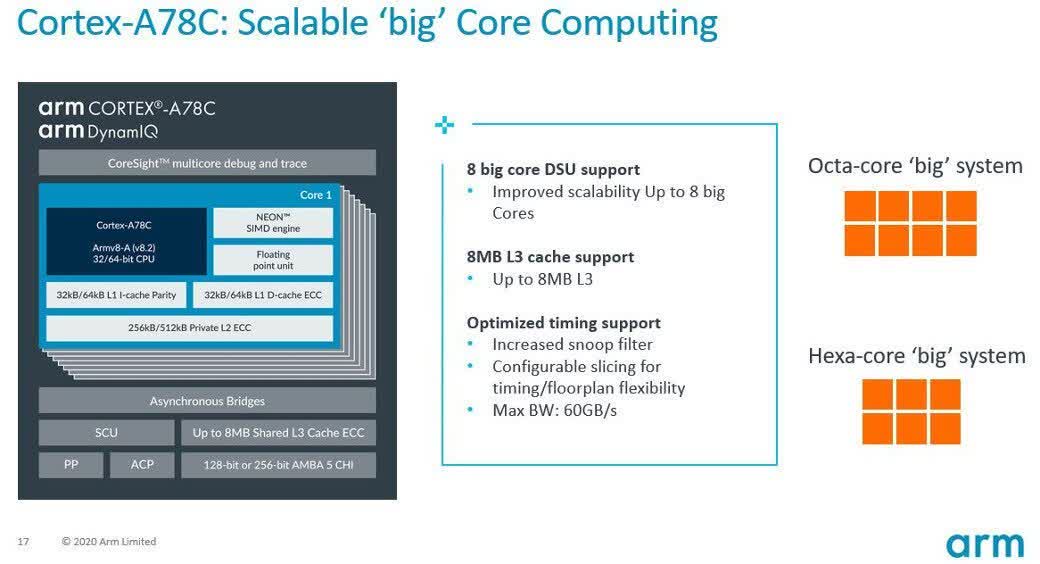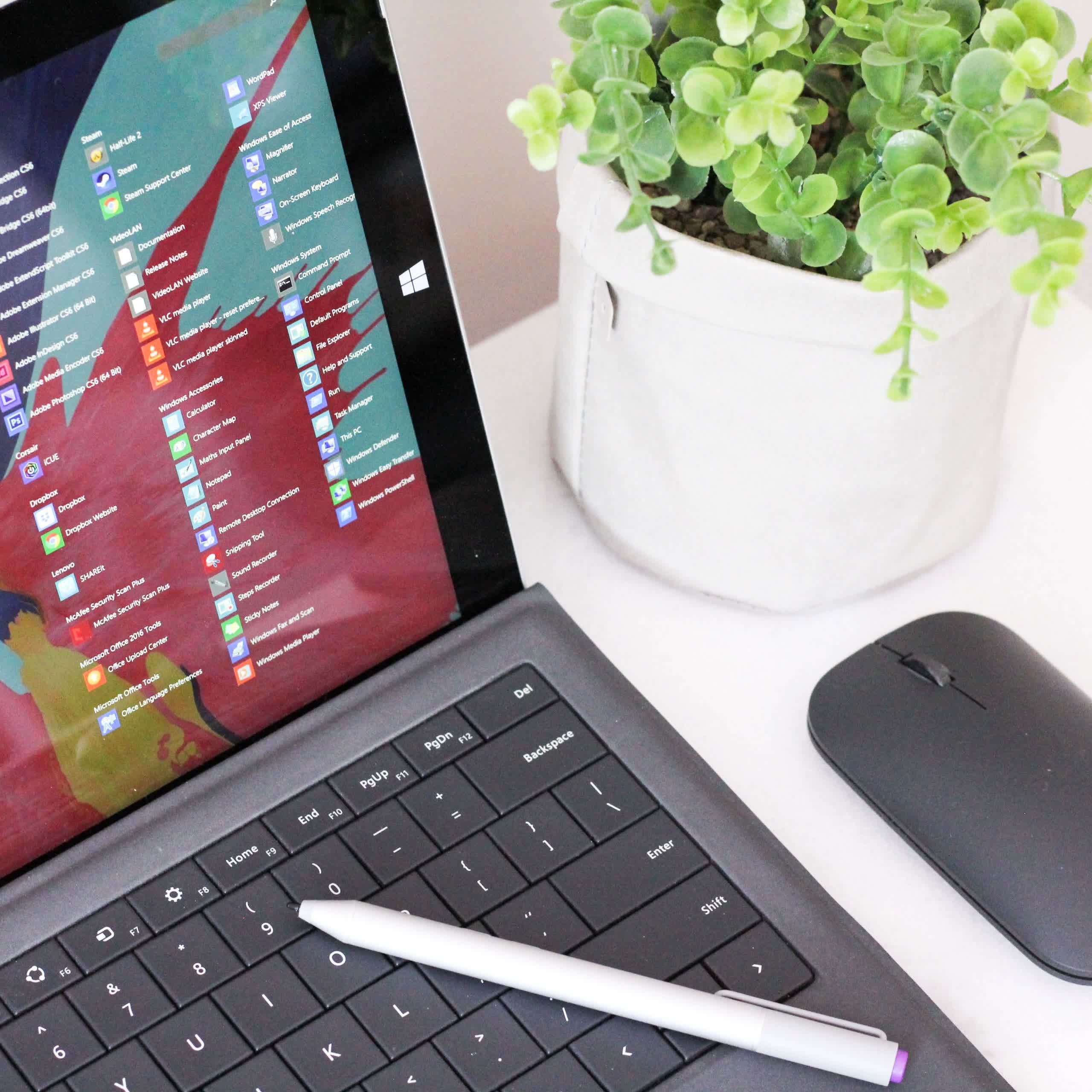Something to look forward to: Arm has just announced a new processor core, the Cortex-A78C. It's a revision of the Cortex-A78 mobile processor, but it doubles down on the features that on-the-go laptops need. It has more cache, it can operate at higher clock speeds, and it can be configured to use up to eight "big" cores – a first for Arm.
About four years ago, Microsoft announced that they were partnering with Qualcomm to bring the full Windows 10 experience to Arm-based mobile processors. It's been a bit of a rocky ride since then: eventually, Windows-on-Arm devices began to appear, and although they upheld the promise of incredible battery life, they were too expensive to justify their poor performance.
Now, Arm thinks they can solve the problem by designing cores specifically for Windows-on-Arm applications.
The Cortex-A78C is a standard "big" core, meaning it's designed for intensive and consistent workloads. Until now, big cores have only been available in quad-core configurations, and usually used together with another four "little" low-power efficiency-oriented cores. That's good enough for phones, but for laptops, Arm is enabling big hexa-core and octa-core configurations.

Arm hasn't specified the A78C's clock speed, nor have they clarified whether or not different A78C cores within the one processor will be clocked differently. However, we know that the A78C will at least be able to exceed the 2.42 GHz the vanilla A78 can achieve inside the Qualcomm 875 mobile processor.
The A78C can be paired with up to 8 MB of L3 cache, and depending on manufacturers' preferences, each core can have either 256 or 512 kB of L2 cache. The L1 instruction and data caches can both be either 32 or 64 kB. The processor's maximum memory bandwidth is 60 GB/s.
The A78C also has new security measures. Arm points to a new Pointer Authentication (PAC) system as a standout feature; it reportedly reduces return-oriented-programming exploits by two-thirds and jump-oriented-pointer exploits by two-fifths.
Arm's timely reveal of the A78C has placed it in contention with Apple's November 10 event, where it's expected they will launch their first laptops sporting Arm-based Apple Silicon. The two companies will shortly go head-to-head to compete for the low-power laptop processor market.
Image credit: Andrew Mantarro
